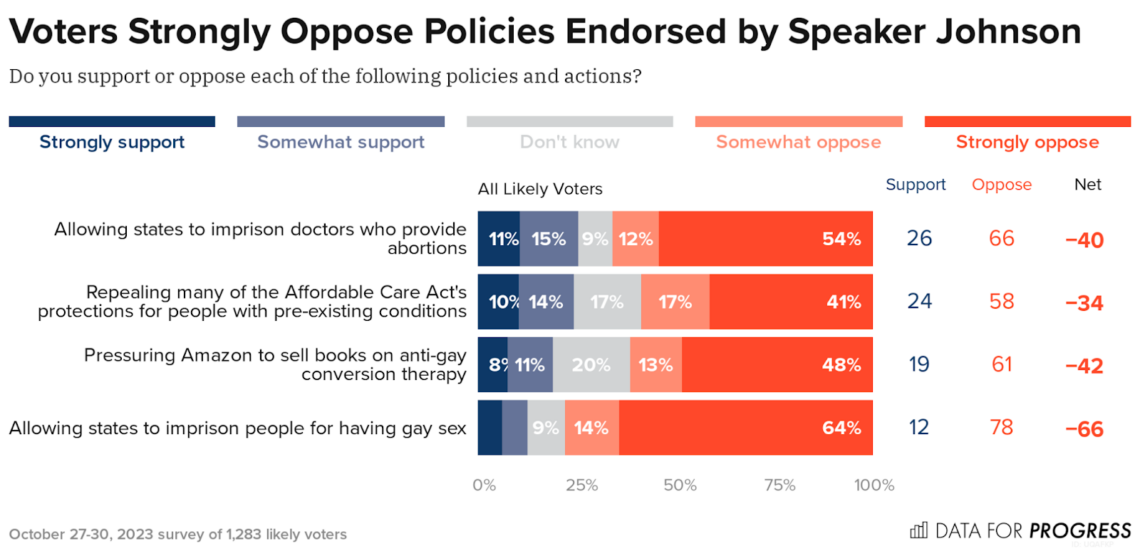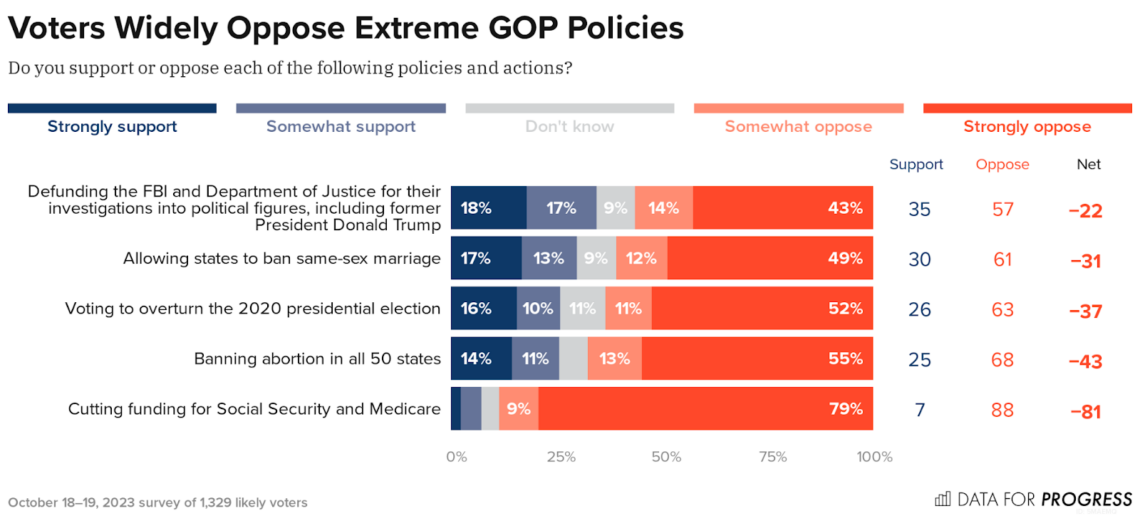Pretty much everybody opposes everything Mike Johnson stands for
New House Speaker Mike Johnson (R) holds extremist views on social issues and based his political and professional career on opposition to LGBTQ+ rights. He’s argued that gay sex should be illegal, opposes same-sex marriage, and is a proponent of debunked attempts to turn gay people straight.
But when Americans were asked about their views on Johnson’s Christian Nationalist positions, the overwhelming majority opposed everything he stands for.
Related:
In a recently released Data for Progress poll, most respondents admitted that they didn’t know how to feel about him because they still had no idea who he was.
Get the Daily Brief
The news you care about, reported on by the people who care about you:
But when pollsters asked about his specific positions, the change was dramatic. A substantial majority of voters, including independents, oppose many of Speaker Johnson’s past actions and policy stances, particularly those related to abortion, LGBTQ+ rights, and defending former President Trump.
Seventy-eight percent oppose his position that states should be allowed to imprison people for having gay sex. Sixty-one percent oppose his attempts to force Amazon to sell anti-LGBTQ+ books, and the same amount are against his attempts to allow states to ban same-sex marriage.
Many other policies Speaker Johnson has endorsed are widely unpopular with voters — including imprisoning doctors who provide abortions and repealing the Affordable Care Act’s protections for people with pre-existing conditions.
The poll also found that a majority of voters oppose cutting funding for Social Security and Medicare, banning abortion in all 50 states, and voting to overturn the 2020 presidential election — all of which are policy stances and actions that Johnson has taken in the past.


From October 27 to 30, 2023, Data for Progress surveyed 1,283 likely voters nationally using web panel respondents. The sample was weighted to represent likely voters by age, gender, education, race, geography, and voting history. The survey was conducted in English. The margin of error is ±3 percentage points.